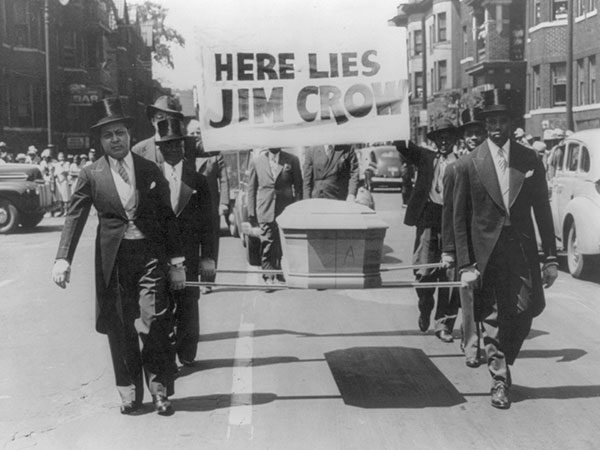by Jessica Washington —

The Supreme Court has been pumping out a steady stream of life-altering decisions on everything from LGBTQ+ rights to affirmative action. But there’s one case that didn’t make it onto their docket that’s worth a deeper look. On Friday, the Supreme Court declined to hear a challenge to Mississippi’s Jim Crow-era felony voting provision, meaning the provision will be allowed to continue.
Before we dive into the court’s decision, it’s worth giving some background on the felony voting provision and why it’s so controversial. In the 1890s, Mississippi adopted a constitutional provision barring people convicted of specific felonies from voting. The catch, lawmakers went out of their way to choose nine felonies they believed Black Mississippians were more likely to commit.
And you don’t have to take our word for it; in her dissent, Justice Ketanji Brown Jackson included a pretty damning quote from the President of the 1890s Mississippi Constitutional Convention. “We came here to exclude the negro. Nothing short of this will answer,” he said.
Despite the pretty obvious racist intent behind the voting provision, the Supreme Court declined to hear a challenge to the Fifth Circuit ruling allowing the practice to continue. The Supreme Court argued that Mississippi had remedied the provision’s racist intent by altering some of the disqualifying crimes. As it stands, the list of felonies includes crimes such as perjury, murder, rape, bribery, theft, arson, obtaining money or goods under false pretense, embezzlement, bigamy, and forgery.
Unsurprisingly, Jackson, who was joined by Justice Sonia Sotomayor, didn’t buy her colleague’s argument. “So, at the same time that the Court undertakes to slay other giants, Mississippians can only hope that they will not have to wait another century for a judicial knight-errant,” wrote Jackson. “Constitutional wrongs do not right themselves. With its failure to take action, the court has missed yet another opportunity to learn from its mistakes.”
The voting rights of people convicted of felonies have been controversial nationwide, and race is an undeniable thread in all of these cases. A 2022 report from the Sentencing Project found that roughly 10 percent of Black adults in Alabama, Arizona, Florida, Kentucky, Mississippi, South Dakota, Tennessee, and Virginia are disenfranchised due to felony convictions.
There have been other cases pushing back on these laws. Last week, attorneys from the ACLU of Virginia, Protect Democracy, and WilmerHale sued Virginia over its felony disenfranchisement law. The plaintiffs argue that it violates a federal law intended to stop Virginia from passing discriminatory voting laws. Although the fight against felony disenfranchisement took a major hit at the Supreme Court on Friday, no one seems ready to throw in the towel.



